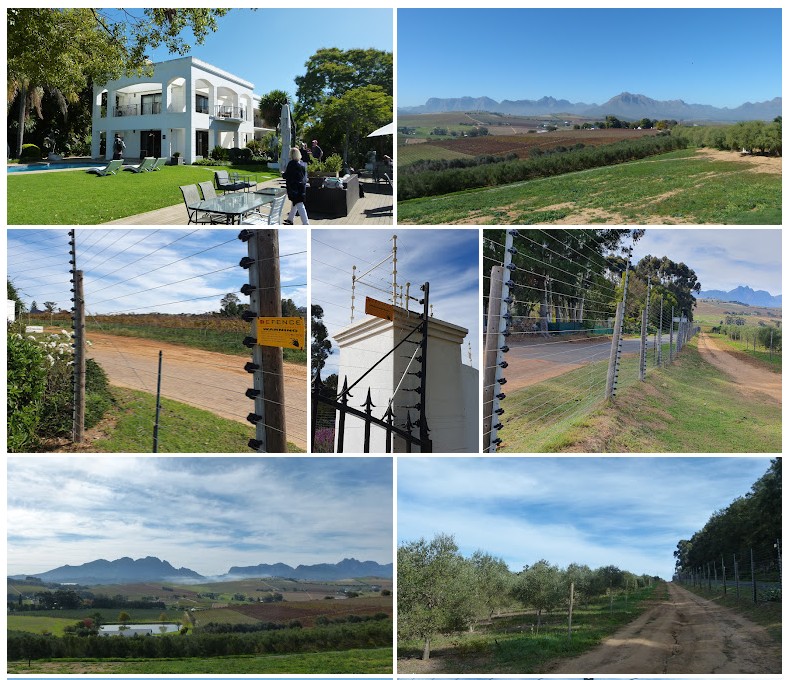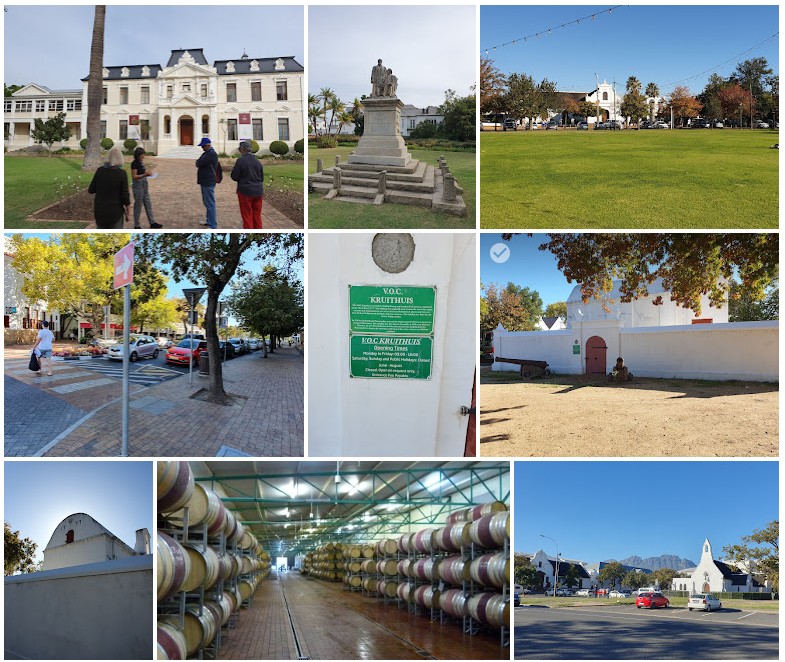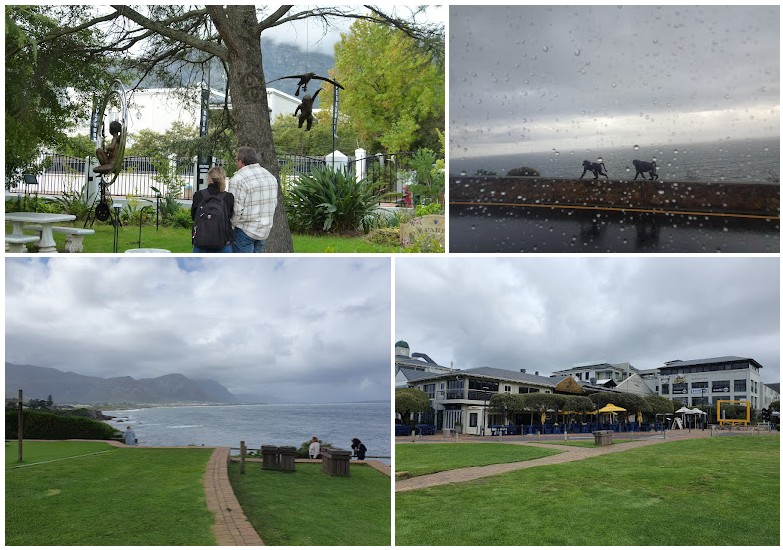At Stellenbosch, we were staying out of town, in the countryside. It was quite idyllic, except that we couldn't walk outside the estate perimeter due to the electric fences. They were not there to contain the animals nor the guests. They're simply a feature of middle class life in South Africa.
Almost the first thing one notices about middle class residences in South Africa is the, almost ubiquitous, electric fences and barbed wire.
I asked our driver what happens when someone shorts-out a fence, which would seem to be easy to do. Anything insulated would do. Just push the alternate wires together - a wine bottle would be ideal.
He said no, no one goes near them. Too Scary! I was so tempted to see for myself. Some have signs saying: 'Armed Response' - but how quickly? A hidden machine gun?
The fences separate two worlds: an Australia-like one (very similar in almost every way); and that of the settlements - many are un-serviced shanty towns.
These are growing all the time, new ones going up as we passed, because however terrible and unsanitary they are, they are better than elsewhere in Africa, where new people flood in from, every day.
As my parents asked over 70 years ago - how long can this go on?

Stellenbosch is a pleasant middle-sized city/town about an hour's drive from Cape Town, in the heart of the wine country. It's quite similar to several of Australia's larger regional towns and about as ethnically diverse.
Stellenbosch boasts a University; a coffee/wine culture, with a plethora of cafés and restaurants; and a growing tourist industry. It's architecture is 'Cape Dutch', having been founded by Simon van der Stel in 1679 (Stel's Bush).
As the date attests they were producing wine here before European settlement in Australia was even thought of. Of course, after 1787, all the British convict fleets came this way, enroute to Sydney Town, to pick up livestock and other provisions, not to mention rum (a generic term that included wine and brandy).
Over 70% of the population have Afrikaans as their first language but everyone we encountered also speaks English.
This was the first time I noticed that both Australians and South Africans use 'the bush' to denote the countryside. Why don't we use the more English 'forest' or 'countryside, like New Zealand'? The word 'bush' was adopted very early, obviously preceding the term: 'bushranger', instead of 'highwayman'.
Macquarie Dictionary tells me that its origin is: [Middle Dutch busse (noun)]. So, obviously, Australia got it from here.
If you are like me, you were never taught any South African history at school, except for acknowledging the heroes of the Boer War, listed on numerous honour boards and memorials.
This is the official government (short) version: Click here... Nothing about those heroes here. History is written by the victors, very interesting.
According to our walking tour guide in Stellenbosch, the metallic signs and lettering on several shops and buildings had disappeared overnight. No doubt during the blackout.
We had initially expected a trip on the luxury Blue Train as a component of our tour package. Here, we were told that the reason the Blue Train wasn't running was because the copper cables had been stolen. A Facebook friend added that when he lived here a decade ago even the telephone wires got stollen.
Who buys the scrap metal? Later, we imagined that it makes it's way over the border, into Zambia

Our somewhat disgruntled tour group, as a result of missing out on the Blue Train, organised a day trip to the east coast to see a bit more of the Cape.
One of our stops was the pleasant/cute/trendy village of Franschhoek (the French corner, in Afrikaans).
Among the Europeans who settled here were French Protestants, the Huguenot, driven from France during the wars of religion, who now make up a sizable minority in this region.

Below - a local art gallery in Franschhoek and the resort town of Hermanus Village - no doubt nicer on a fine day.

The following day we flew north to Johannesburg.
